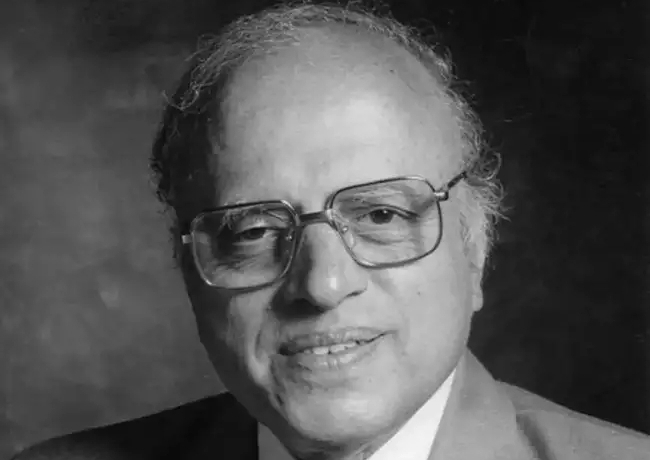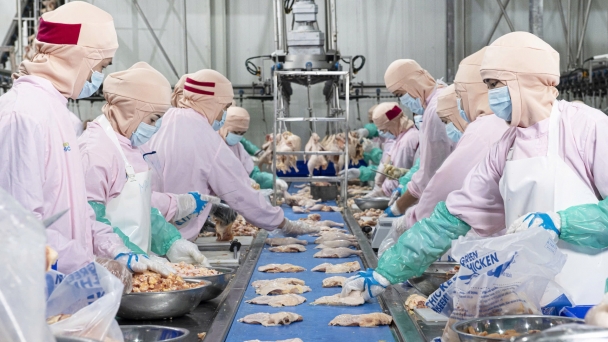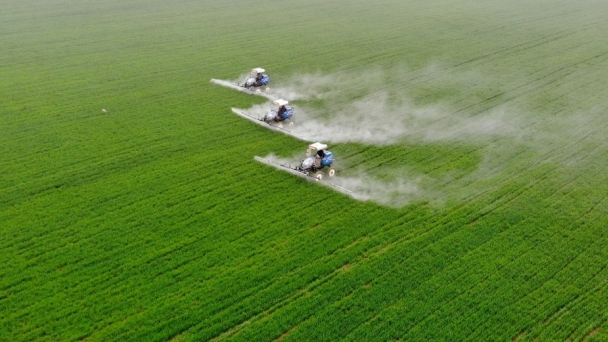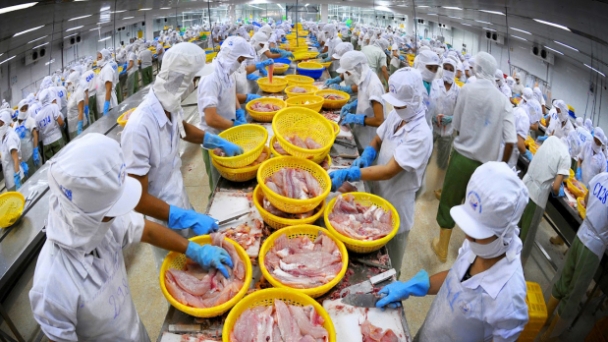January 7, 2025 | 09:01 GMT +7
January 7, 2025 | 09:01 GMT +7
Hotline: 0913.378.918
January 7, 2025 | 09:01 GMT +7
Hotline: 0913.378.918

Dr. Swaminathan helped India overcome famine and become a leading food exporter.
"I was extremely saddened to receive the news of the demise of Dr. Monkombu Sambasivan Swaminathan on September 28, 2023. On behalf of the Ministry of Agriculture and Rural Development of Vietnam, I would like to extend my deepest condolences to the Ministry of Agriculture and Farmers Welfare, the people of India, and the family of Dr. MS Swaminathan", Minister Le Minh Hoan sent the letter of condolence on October 5.
The leader of Vietnam Ministry of Agriculture and Rural Development recognizes that Dr. MS Swaminathan devoted his life to sustainable agriculture with groundbreaking contributions which made the Green Revolution a reality in India and opened a new, transformative era in the country’s agricultural development.
He was the one, among many, who led the noble campaign to make India self-reliant in food, not only providing sufficient food for its large population but also becoming a leading food exporter globally.
Besides his contribution to the South Asian country's agriculture, Dr. MS Swaminathan laid the foundation for and made important contributions to Vietnam - India agricultural cooperation right after Vietnam’s reunification in 1975.
He himself conducted fieldwork and supported Vietnam to build the Mekong Delta Rice Research Institute. He helped train high-quality human resources for Vietnam, over 70 doctors and nearly 100 master’s graduates. Among them are former Deputy Minister of Agriculture and Rural Development, Dr. Bui Ba Bong, and many senior experts in the agricultural sector. In his capacity of General Director of the International Rice Research Institute (IRRI), Dr. MS Swaminathan provided Vietnam with valuable support, especially in terrms of rice genetic resources, human resource training, and research projects on rice. Dr. MS Swaminathan's important efforts enabled the country to ensure its food security and to become one of the world’s important food suppliers.
At the end of the letter, MARD Minister sincerely hope the Ministry of Agriculture and Welfare, Indian people, and Dr. Swaminathan's family soon overcome this great loss and pain.
Dr. Swaminathan opened the "Green Revolution" in India 60 years ago, helping eradicate hunger and making the country a leading wheat producer.
He bred wheat seeds that helped India triple its annual output within 15 years. The Green Revolution fostered Indian farmers to overcome many problems in the overuse of fertilizers and pesticides, while also reducing the amount of water used for irrigation.
The concept of the "Green Revolution" first emerged when Dr.Swaminathan coined the term "Evergreen Revolution" in the 1990s in order to describe his idea of “productivity in perpetuity without associated ecological harm”.
In 1999, he was selected by Times magazine as one of three Indians, along with leader Mahatma Gandhi and poet Tagore, in the list of the 20 most influential Asians of the 20th century. He passed away at his home in Chennai, at the age of 98.
Dr. Monk ombu Sambasivan Swaminathan, winner of the first annual General Foods World Food Prize, is known as the architect of India's Green Revolution.
In 1986, Dr. M.S. Swaminathan, a former Secretary of Agriculture and Member of the Planning Commission of the Indian Government, received the Albert Einstein World Science Award. Indian President Giani Zail Singh presented him with the "Krishni Ratna" prize for dedication "to the cause of agro-science." At least 23 institutions of higher learning have awarded him honorary D.Sc. degrees.
Born Aug 7, 1925, in Kumbakonam, a village in the southern Indian state of Tamil Nadu, Dr. Swaminathan is the son of a surgeon credited with helping to eradicate the disease popularly known as elephantiasis. After graduating from Coimbatore Agricultural College, Dr. Swaminathan earned his Ph.D. in genetics from Cambridge University in 1952. He then worked as a research associate at the University of Wisconsin at Madison, where his research on the potato plant led to the development of a variety known as "Alaska Frostless."
Joining the Indian Agricultural Research Institute in 1954, he worked in this branch of the Indian Civil Service until 1972 as a wheat and rice geneticist. During the next seven years, Dr. Swaminathan served as Director-General of the Indian Council of Agricultural Research. He was Secretary of Agriculture from 1979-80 and served for the next two years as a Member of the Planning Commission of the Indian Government.
He is renowned for his leading role in India's National Demonstration Programme, begun in 1964. Under the programme, high-yield varieties of wheat and rice seedlings were planted in the fields of India's poorest farmers.
Swaminathan recognized the value of introducing Mexican semi-dwarf wheat plants to India to circumvent the problems that resulted when tall, native varieties of wheat were fertilized and subsequently "lodged," or toppled over.
The fertility of these "miracle grains" converted ageneration of Indian farmers to belief in the efficacy of using fertilizer and other modern farming methods. Thus, the famine that threatened India in the early 1960s was averted, and India was transformed from an agricultural "basket case" into a "bread basket."
In 1979, when a drought threatened to wipe out the gains India had made, Dr. Swaminathan converted this crisis into an opportunity for progress by streamlining the nation's system of disaster-preparedness. Today, the nation feeds ifself, exports foodstuffs and possesses 30 tons of grain reserves.
Translated by Linh Linh

On January 3, the Department of Livestock Production held a conference to review the work in 2024 and deploy the work plan for 2025.

(VAN) According to the Food and Agriculture Organization of the United Nations, crop pests and diseases cause annual yield losses of up to 40 percent, leading to economic damages exceeding $220 billion.

(VAN) Despite numerous challenges, Vietnam's seafood exports in 2024 reached over 10 billion USD, up 12.1% from 2023.

(VAN) The Vietnamese trade counselor in the United States predicts a positive outlook for this market in early 2025 and recommends several solutions.

(VAN) China has approved five gene-edited crop varieties and 12 types of genetically modified (GM) soybean, corn and cotton, expanding approvals to boost high-yield crops, reduce import reliance, and ensure food security.

(VAN) The French Ambassador to Vietnam discussed the necessity of enhancing bilateral and multilateral collaboration to address climate change, particularly in the agricultural sector.

(VAN) On December 30, MARD and the International Livestock Research Institute (ILRI) held a consultation meeting to review the results of the CGIAR One Health Initiative as part of its project completion process.